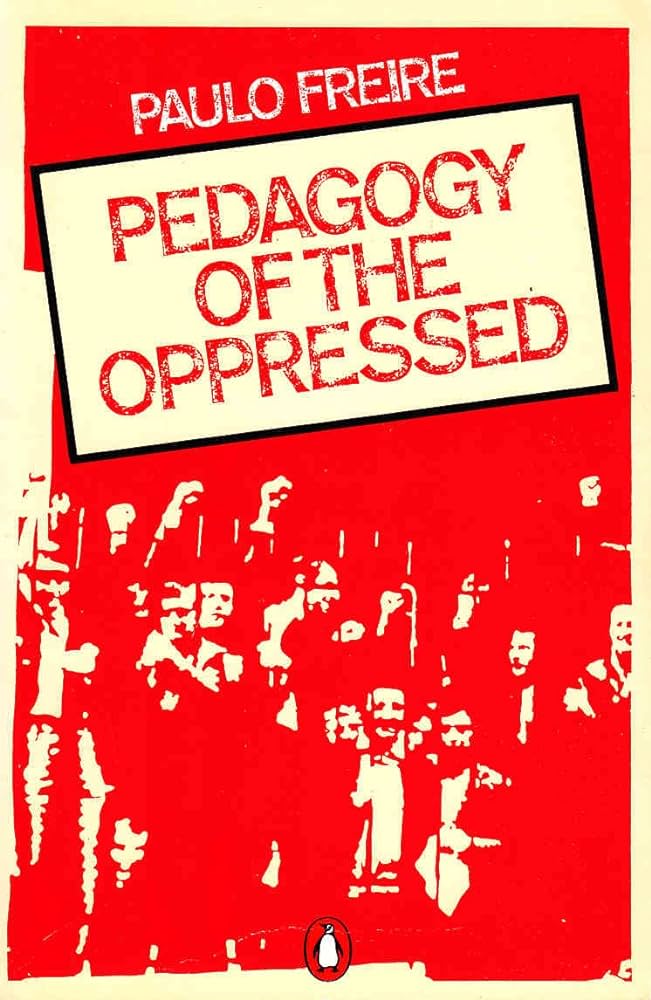Hi all, thanks for an amazing discussion today about alternative pedagogical approaches. I wanted to share with you three resources that you may find interesting.

Paulo Freire’s essay “The Banking Concept of Education” is a seminal piece critiquing traditional education methods and advocating for more participatory alternatives. It is Chapter Two of his famous book Pedagogy of the Oppressed. The BMCC Library has a digital copy here:
https://cuny-bm.primo.exlibrisgroup.com/permalink/01CUNY_BM/1eh1cec/alma9994334749706141
Freire, widely considered the founder of the critical pedagogy movement, was very influenced by Frantz Fanon and Amilcar Cabral, both of whom wrote theorized the education of culture and its relationship to anti-colonial struggle. Here’s an essay by Curry Mallott about Cabral’s influence on Paolo Freire. It includes a SoundCloud recording, so you can listen to the article rather than read, if you so prefer. (Universal Design for Learning [UDL] in practice!)
Lastly, I’d like to bring your attention to a fabulous new Open Access article published in the journal Teaching in Higher Education: Critical Perspectives, “Addressing imperial evasion: toward an anti-imperialist pedagogy in teacher education.” It is co-authored by Shireen al-Adeimi, an incredible Yemeni scholar, and Alex Allweiss. Here is the abstract:
Despite the pervasive impact of US imperialism, it is often ignored in US schools and teacher preparation programs. This paper introduces the concept of imperial evasion, which refers to the process of ignoring and denying imperialism and its effects. The authors argue that it is imperative that educators work to interrogate imperialist ideologies through curricula, and prepare future educators to disrupt such ideologies, policies, and practices in schools. Using a collaborative scholarly personal narrative approach, the authors discuss their experiences and approach to designing and teaching a course on migration and education at a US university. Ultimately, this paper responds to calls to disrupt imperial ideologies in education by (1) providing a framework for identifying and naming imperial evasion and how it operates through schooling; and (2) describing and reflecting on curricular and pedagogical approaches to disrupting such evasions in a teacher education course.At a moment when US-led imperialism is on grotesque display, and university administrators are actively stifling (if not outright policing) critical discussion amongst our community of its impacts and ramifications, I feel like this article could not be any more relevant.
OK, see you next week!